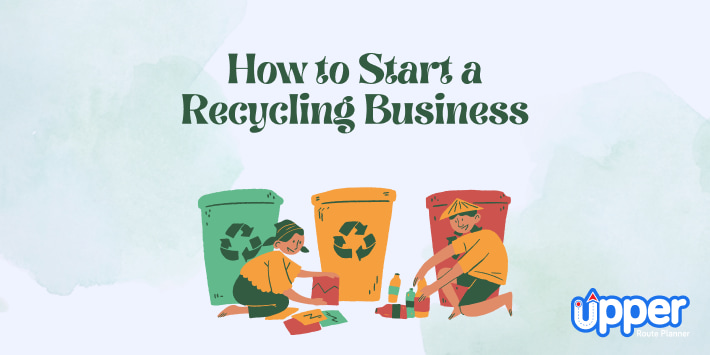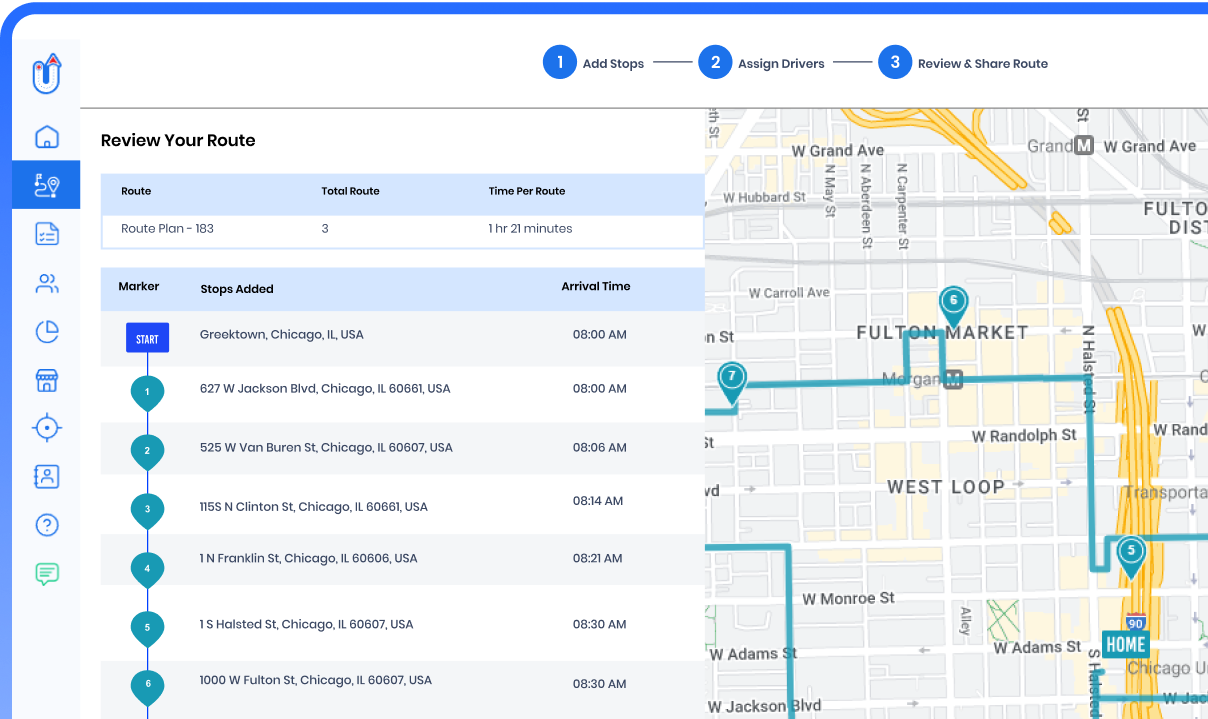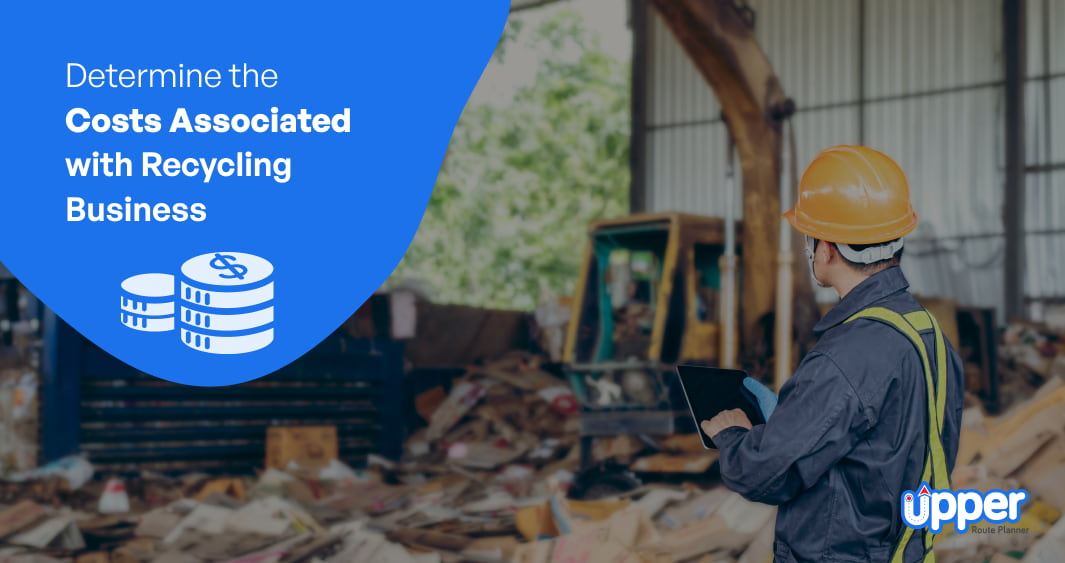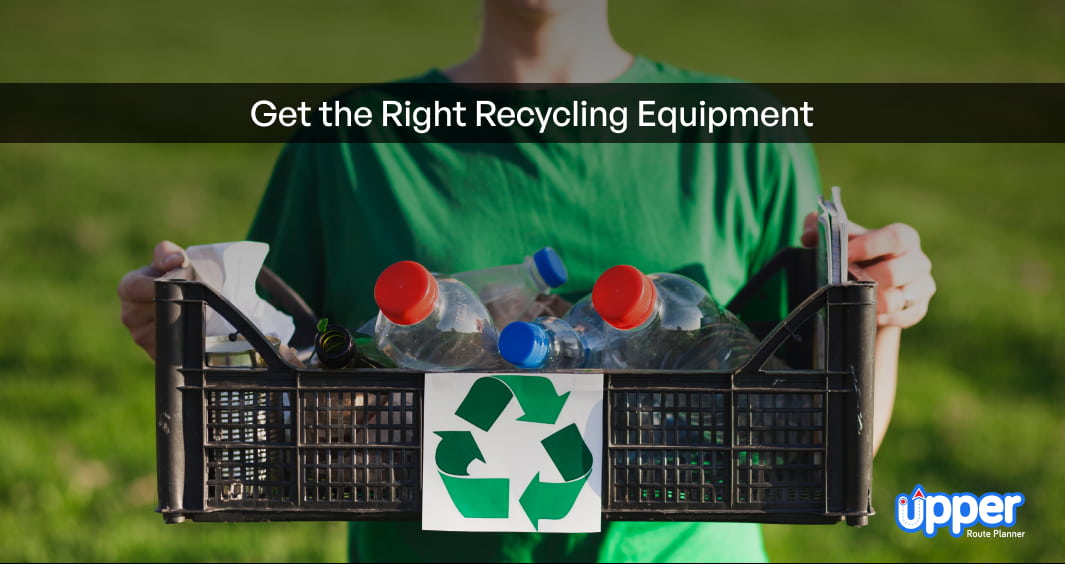

The recycling business is considered the “economic engine,” which generates more than 500,000 jobs in the USA alone and is only expected to grow daily. The recycling industry is forecasted to be at a market value of 88.1 billion USD by 2030.
A market of such enormous size and its future safe will surely offer brilliant business opportunities. Moreover, with the size of waste increasing exponentially, even the governments want more and more business establishments in recycling management.
Multiple horizons can be explored in the recycling business. Paper, plastic, metal, and rubber recycling are some of the most fruitful options. To pursue the goal of operating a recycling business, be sure that you go through the article on how to start a recycling business and understand the basics of it.
Forget Spaghetti Routes, Optimize Routes for Your Entire Team with Upper

Table of Content
Let’s look at some of the latest recycling trends to know, which will be helpful for working in the industry of recycling and waste management.
A successful recycling business will necessitate extensive market research and implementation. But, to make things easier for you, here are the 11 effective steps to starting a recycling business.
Conduct market research to determine who your competitors are, how successful they are, and whether your area has enough volume to support another recycling business. Are there any materials that the current recycling companies are ignoring? Make sure your research assists you in selecting both profitable materials and a competitive niche.
Once you’ve decided which materials your company should recycle, look into the local government and environmental protection agency. These agencies offer grants and special loans that can cover the processing costs, costs of your facility, staff, electricity, equipment, transportation, storage, handling of materials, and other expenses.
The basic start-up costs for a recycling business can be high in the first month, considering the low-interest loans provided by the government. Also, the incentives typically vary from one to another, so make sure to research the state where you intend to operate your recycling business.
Once you have chosen your niche, you must create a budget to fund all associated operations. The budget should account for the costs of obtaining the necessary licenses and permits, a location to store and recycle the materials, pay for any employees you hire, equipment and tools needed for the recycling process, cash for the recyclables, and vehicles.

For instance, recycling at a facility a little outside of town will also help you save money because real estate costs fall as you get farther from a city center.
After all the research you have done, it’s time to create a recycling business plan, which is a formal document outlining how you will develop and operate your business.
It will help you stay focused as you move forward with the creation of your company and will also give potential lenders the information they need to judge the viability of your project. A thorough section on each of the following subjects needs to be included in your business plan:
Choose a good business name. The name should be straightforward to read and say. Once you register your recycling business names ideas, it’s time to define the business structure. Some requirements behind registering your business are paying taxes, raising funds, and opening a bank account.

Making a business structure will define your role within the organization, which is the next step. You could opt for either sole proprietorship, partnership, limited liability company, or S corporation.
The recycling sector requires several licenses. You will need to apply for several permits before you can start your smoothly-operating recycling business. The following are some instances of common licenses and permits needed:
The next step is deciding where to start your recycling business. You must buy or rent a building to store, process, or sell recyclable materials. Choose a spot close to any landfills or waste management facilities but far away from residential areas.
Irrespective of people dropping the waste at drop-off units or you decide to do pick-ups, you must have a facility drop-off to carry out the actual process of recycling.
You need to verify with your city’s zoning commission, planning, and development department, or building division regarding the zoning rules for that area. This will help you save on transportation costs while also allowing you to network with relevant authorities frequently and effectively.
Your business’s success depends on the tools you use. Here’s a list of some of the tools you’ll need:
 Get the right recycling equipment" width="1065" height="564" />
Get the right recycling equipment" width="1065" height="564" />
The equipment will make up most of your initial recycling start-up costs, so do your homework and speak with business experts to identify the long-lasting, high-performing recycling equipment to purchase.
Business insurance is an area that is frequently overlooked, even though it can be critical to your success as an entrepreneur. Insurance protects you from unanticipated events that can be disastrous to your business.
Here are some insurance options you can consider:
The next step is to assemble a team and recruit a few experts to manage the work. You will need employees to manage the register and assist customers in loading their purchases if you want to run a secondhand store.

When collecting recyclables, employees must drive the vehicles and lift large, heavy objects. You will need a separate processing facility to operate your equipment if you are processing recyclables. In addition, consider hiring individuals to help with bookkeeping and marketing tasks.
For new recycling businesses, word-of-mouth promotion is essential because it will raise client and brand awareness. You should invest in a quality website because it serves as your online presence and convince prospective clients.

Once your website is up and running, connect your social media accounts. It’s an excellent tool for business promotion because you can use social media to create engaging posts that advertise your business.
Facebook is a great platform for paid advertising because it lets you target particular demographics. Also, SEO will assist in moving your website up in relevant search results, which is essential for boosting sales. Make sure your website is optimized for calls to action. Try different combinations of text, color, size, and placement for calls to action like “Recycle Now.” Your collection of recyclable materials could significantly increase as a result.
Route planning software comes as a lifesaver for a new business. Recycling companies require heavy commercial vehicles to pick up and take them to the drop-off centers for recycling. Without proper experience or tools, this job can be a demanding one. When starting a new business, you may have to devote your time and resources to multiple tasks.
Don’t make your job tougher. Make sure that you use an intelligent and effective route optimization tool, like Upper, that will help plan an optimized route and utilize the available resources to the best of their limits.
Switch to Automated Route Planning with Upper
Instantly channelize your material pick up and drop offs for recycling. Let Upper find the fastest driving route for a better routing experience.